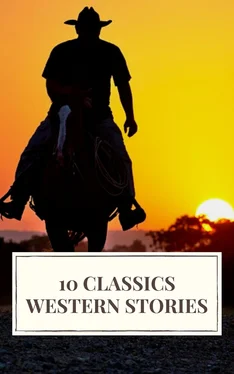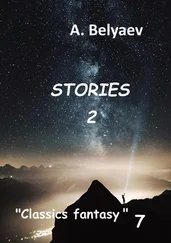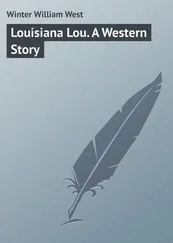Samuel Merwin - 10 Classics Western Stories
Здесь есть возможность читать онлайн «Samuel Merwin - 10 Classics Western Stories» — ознакомительный отрывок электронной книги совершенно бесплатно, а после прочтения отрывка купить полную версию. В некоторых случаях можно слушать аудио, скачать через торрент в формате fb2 и присутствует краткое содержание. Жанр: unrecognised, на английском языке. Описание произведения, (предисловие) а так же отзывы посетителей доступны на портале библиотеки ЛибКат.
- Название:10 Classics Western Stories
- Автор:
- Жанр:
- Год:неизвестен
- ISBN:нет данных
- Рейтинг книги:3 / 5. Голосов: 1
-
Избранное:Добавить в избранное
- Отзывы:
-
Ваша оценка:
- 60
- 1
- 2
- 3
- 4
- 5
10 Classics Western Stories: краткое содержание, описание и аннотация
Предлагаем к чтению аннотацию, описание, краткое содержание или предисловие (зависит от того, что написал сам автор книги «10 Classics Western Stories»). Если вы не нашли необходимую информацию о книге — напишите в комментариях, мы постараемся отыскать её.
The novels are sorted alphabetically by the authors.
Content:
The Log of a Cowboy by Andy Adams
The Bridge of the Gods by Frederic Homer Balch
The Lure of the Dim Trails by B.M. Bower
Hidden Water by Dane Coolidge
The Last of the Mohicans by James Fenimore Cooper
The Prairie by James Fenimore Cooper
Salomy Jane by Bret Harte
Astoria by Washington Irving
The road to Frontenac by Samuel Merwin
That Girl Montana by Marah Ellis Ryan
10 Classics Western Stories — читать онлайн ознакомительный отрывок
Ниже представлен текст книги, разбитый по страницам. Система сохранения места последней прочитанной страницы, позволяет с удобством читать онлайн бесплатно книгу «10 Classics Western Stories», без необходимости каждый раз заново искать на чём Вы остановились. Поставьте закладку, и сможете в любой момент перейти на страницу, на которой закончили чтение.
Интервал:
Закладка:
Bull was rolling a cigarette before starting, while Fox's night horse was hard to bridle, which hindered them. With this slight delay, Forrest turned his horse back and continued: "That same ox on the next trip, one night when we had the wagons parked into a corral, got away from the herder, tip-toed over the men's beds in the gate, stood on his hind legs long enough to eat four fifty-pound sacks of flour out of the rear end of a wagon, got down on his side, and wormed his way under the wagon back into the herd, without being detected or waking a man."
As they rode away to relieve the first guard, McCann said, "Isn't he a muzzle-loading daisy? If I loved a liar I'd hug that man to death."
The absence of our foreman made no difference. We all knew our places on guard. Experience told us there would be no trouble that night. After Wyatt Roundtree and Moss Strayhorn had made down their bed and got into it, Wyatt remarked,—
"Did you ever notice, old sidey, how hard this ground is?"
"Oh, yes," said Moss, as he turned over, hunting for a soft spot, "it is hard, but we'll forget all that when this trip ends. Brother, dear, just think of those long slings with red cherries floating around in them that we'll be drinking, and picture us smoking cigars in a blaze. That thought alone ought to make a hard bed both soft and warm. Then to think we'll ride all the way home on the cars."
McCann banked his fire, and the first guard, Wheat, Stallings, and Borrowstone, rode in from the herd, all singing an old chorus that had been composed, with little regard for music or sense, about a hotel where they had stopped the year before:—
"Sure it's one cent for coffee and two cents for bread, Three for a steak and five for a bed, Sea breeze from the gutter wafts a salt water smell, To the festive cowboy in the Southwestern hotel."
Chapter 10 "No Man's Land"
Flood overtook us the next morning, and as a number of us gathered round him to hear the news, told us of a letter that Mann had got at Doan's, stating that the first herd to pass Camp Supply had been harassed by Indians. The "Running W" people, Mann's employers, had a representative at Dodge, who was authority for the statement. Flood had read the letter, which intimated that an appeal would be made to the government to send troops from either Camp Supply or Fort Sill to give trail herds a safe escort in passing the western border of this Indian reservation. The letter, therefore, admonished Mann, if he thought the Indians would give any trouble, to go up the south side of Red River as far as the Pan-handle of Texas, and then turn north to the government trail at Fort Elliot.
"I told Mann," said our foreman, "that before I'd take one step backward, or go off on a wild goose chase through that Pan-handle country, I'd go back home and start over next year on the Chisholm trail. It's the easiest thing in the world for some big auger to sit in a hotel somewhere and direct the management of a herd. I don't look for no soldiers to furnish an escort; it would take the government six months to get a move on her, even in an emergency. I left Billy Mann in a quandary; he doesn't know what to do. That big auger at Dodge is troubling him, for if he don't act on his advice, and loses cattle as the result—well, he'll never boss any more herds for King and Kennedy. So, boys, if we're ever to see the Blackfoot Agency, there's but one course for us to take, and that's straight ahead. As old Oliver Loving, the first Texas cowman that ever drove a herd, used to say, 'Never borrow trouble, or cross a river before you reach it.' So when the cattle are through grazing, let them hit the trail north. It's entirely too late for us to veer away from any Indians."
We were following the regular trail, which had been slightly used for a year or two, though none of our outfit had ever been over it, when late on the third afternoon, about forty miles out from Doan's, about a hundred mounted bucks and squaws sighted our herd and crossed the North Fork from their encampment. They did not ride direct to the herd, but came into the trail nearly a mile above the cattle, so it was some little time from our first sighting them before we met. We did not check the herd or turn out of the trail, but when the lead came within a few hundred yards of the Indians, one buck, evidently the chief of the band, rode forward a few rods and held up one hand, as if commanding a halt. At the sight of this gaudily bedecked apparition, the cattle turned out of the trail, and Flood and I rode up to the chief, extending our hands in friendly greeting. The chief could not speak a word of English, but made signs with his hands; when I turned loose on him in Spanish, however, he instantly turned his horse and signed back to his band. Two young bucks rode forward and greeted Flood and myself in good Spanish.
On thus opening up an intelligible conversation, I called Fox Quarternight, who spoke Spanish, and he rode up from his position of third man in the swing and joined in the council. The two young Indians through whom we carried on the conversation were Apaches, no doubt renegades of that tribe, and while we understood each other in Spanish, they spoke in a heavy guttural peculiar to the Indian. Flood opened the powwow by demanding to know the meaning of this visit. When the question had been properly interpreted to the chief, the latter dropped his blanket from his shoulders and dismounted from his horse. He was a fine specimen of the Plains Indian, fully six feet in height, perfectly proportioned, and in years well past middle life. He looked every inch a chief, and was a natural born orator. There was a certain easy grace to his gestures, only to be seen in people who use the sign language, and often when he was speaking to the Apache interpreters, I could anticipate his requests before they were translated to us, although I did not know a word of Comanche.
Before the powwow had progressed far it was evident that begging was its object. In his prelude, the chief laid claim to all the country in sight as the hunting grounds of the Comanche tribe,—an intimation that we were intruders. He spoke of the great slaughter of the buffalo by the white hide-hunters, and the consequent hunger and poverty amongst his people. He dwelt on the fact that he had ever counseled peace with the whites, until now his band numbered but a few squaws and papooses, the younger men having deserted him for other chiefs of the tribe who advocated war on the palefaces. When he had fully stated his position, he offered to allow us to pass through his country in consideration of ten beeves. On receiving this proposition, all of us dismounted, including the two Apaches, the latter seating themselves in their own fashion, while we whites lounged on the ground in truly American laziness, rolling cigarettes. In dealing with people who know not the value of time, the civilized man is taken at a disadvantage, and unless he can show an equal composure in wasting time, results will be against him. Flood had had years of experience in dealing with Mexicans in the land of _mañana_, where all maxims regarding the value of time are religiously discarded. So in dealing with this Indian chief he showed no desire to hasten matters, and carefully avoided all reference to the demand for beeves.
His first question, instead, was to know the distance to Fort Sill and Fort Elliot. The next was how many days it would take for cavalry to reach him. He then had us narrate the fact that when the first herd of cattle passed through the country less than a month before, some bad Indians had shown a very unfriendly spirit. They had taken many of the cattle and had killed and eaten them, and now the great white man's chief at Washington was very much displeased. If another single ox were taken and killed by bad Indians, he would send his soldiers from the forts to protect the cattle, even though their owners drove the herds through the reservation of the Indians—over the grass where their ponies grazed. He had us inform the chief that our entire herd was intended by the great white man's chief at Washington as a present to the Blackfeet Indians who lived in Montana, because they were good Indians, and welcomed priests and teachers amongst them to teach them the ways of the white man. At our foreman's request we then informed the chief that he was under no obligation to give him even a single beef for any privilege of passing through his country, but as the squaws and little papooses were hungry, he would give him two beeves.
Читать дальшеИнтервал:
Закладка:
Похожие книги на «10 Classics Western Stories»
Представляем Вашему вниманию похожие книги на «10 Classics Western Stories» списком для выбора. Мы отобрали схожую по названию и смыслу литературу в надежде предоставить читателям больше вариантов отыскать новые, интересные, ещё непрочитанные произведения.
Обсуждение, отзывы о книге «10 Classics Western Stories» и просто собственные мнения читателей. Оставьте ваши комментарии, напишите, что Вы думаете о произведении, его смысле или главных героях. Укажите что конкретно понравилось, а что нет, и почему Вы так считаете.












